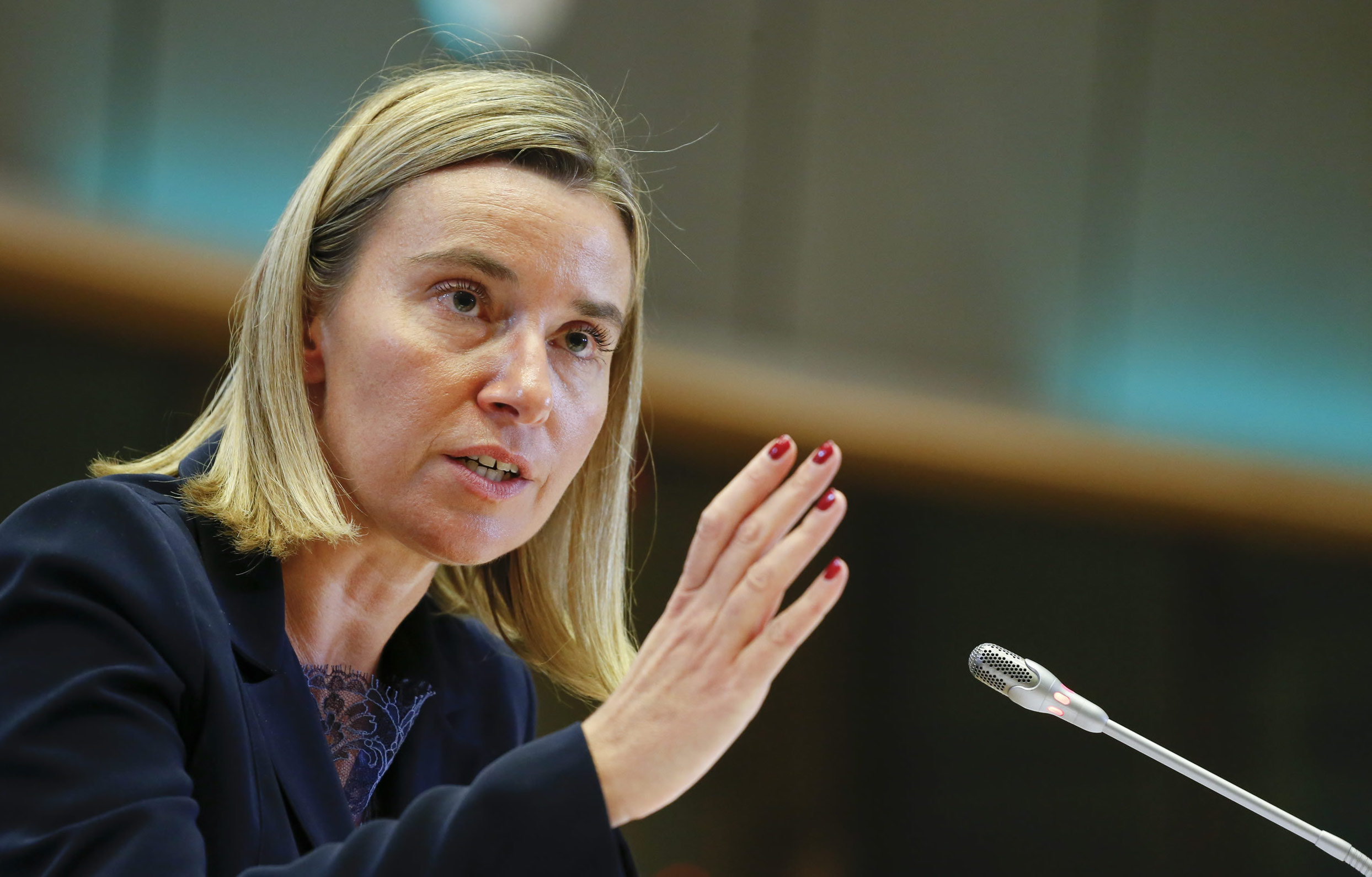LONDON, UK — “Where were you when slavery was happening?” — surprisingly enough, a question our grandchildren will ask us one day.
In November 2017, CNN reported on the Libyan slave trade and showed footage of black migrants being sold for only $400, as farm laborers, at a night-time auction. The auctioneer is heard saying, “Does anybody need a digger? This is a digger, a big strong man, he’ll dig” – replace the ‘d’ in ‘digger’ with an ‘n’ and the scene is one from 17th century America.
Whilst it is easy to believe that such horrific, large-scale human rights violations are confined to history textbooks, the grim reality is that they continue to exist, and sometimes make headlines, even in the 21st century.
Earlier this month, E.U.’s foreign policy chief Federica Mogherini met with Cuban President Raúl Castro as part of her two-day visit to the Communist country. The diplomatic visit aimed to “reconfirm the strong E.U.-Cuban relationship” and to open trade, after the Trump administration rolled back ties with the country and imposed economic sanctions in 2016.
In her speech, Ms. Mogherini highlighted that the E.U. had engaged in human rights dialogue with the Cuban government since 2015 and the prospects for improving the country’s dismal human rights record after implementing Brussel’s Political Dialogue and Cooperation Agreement (PDCA). The chosen approach to deliberately and constructively engage with the Cuban government has its merits.
However, she faced criticism for failing to directly challenge the 58-year-old Castro dictatorship’s systematic human rights abuses; instead, she was perceived as simply echoing the regime’s propaganda.
Former Prime Minister of Belgium and current leader of the Alliance of Liberals and Democrats for Europe (ALDE), Guy Verohfstadt, called the visit “a missed opportunity and weak, regrettable strategy.”
Nearly 900 arbitrary detentions of government critics take place in Cuba every month. Federica Mogherini just visited the island but didn't meet civil society representatives or political opposition. What a missed opportunity & weak, regrettable strategy! https://t.co/HjogzuhoOr pic.twitter.com/EXsfwsJ0ar
— Guy Verhofstadt (@guyverhofstadt) January 6, 2018
Another notable critique came from former President of Estonia, Toomas Hendrik Ilves, who said, “You are not speaking for “Us Europeans”… you speak from ideological convictions much of Europe rejected in 1989-91. An utterly shameful statement given your neglect of… human rights violations in Cuba”.
You are not speaking for "Us Europeans", madame "High Representative". You speak from ideological convictions much of Europe rejected in 1989-91. An utterly shameful statement given your neglect of Ukraine, of human rights violations in Cuba and Russia. https://t.co/hv1VMm57hC
— toomas ilves, ex-verif (@IlvesToomas) January 5, 2018
The backlash comes at a time when the E.U. is under scrutiny by human rights organizations, after Amnesty International’s report claiming that Europe has been knowingly complicit in the abuse of refugees and migrants in Libya’s slave trade.
Amnesty International’s Europe Director John Dalhuisen argued that “European governments must rethink their cooperation with Libya” and take a more active, offensive role in safeguarding human rights, as opposed to silently empowering, legitimizing and appeasing oppressive regimes.
Before the Cuba visit, Ms. Mogherini drew negative attention for her four-day silence, during the violent pro-democracy protests in Iran. The week-long demonstrations against the corrupt government started on December 28 and led to at least 21 deaths and more than 1,000 arrests across the country.
While individual European countries explicitly backed the protesters calling for reform, the E.U. did not make an official statement until January 2. The eventual statement itself was a weak case of moral equivalence when a clear, definitive stance was required.
President Donald J. Trump and his administration condemned the E.U. for not doing more to support Iranian protestors and their fundamental rights to peaceful demonstration and freedom of expression.
The global consensus is that the E.U. is not doing enough. In the Trump era, the U.S. is adopting an increasingly isolationist foreign policy, which impacts E.U. strategic interests. Europe now has a vital, influential role to play in securing Western liberal democracy and promoting human rights, as the U.S. has done so in past decades.
Despite European leaders constantly criticizing the American retreat from the field of international human rights protection, the E.U. has not yet reacted to this geopolitical shift.
Richard Youngs, senior fellow with Carnegie Europe, told The Globe Post that “for all its very necessary criticism of Trump, the E.U. is also moving in the direction of a less values-based and more geopolitical approach to world affairs –- in part because of turbulence and power-shifts beyond its borders, in part because of its own internal challenges.”
This rings true in the E.U.’s recent dealings with Cuba. The diplomatic visit was organized as a counter-move to U.S. hostility, and it was driven by motivations to advance a commercial relationship with the Castro regime, rather than the value of conditioning the country to progress on its human rights framework.
Previous rapprochements with the Cuban dictatorship have generally coincided with worsening human rights conditions and the death of high-profile dissidents.
This issue is not confined to Cuba, and can be seen in many cases worldwide. In 2015, the E.U. lifted sanctions on Robert Mugabe’s regime in Zimbabwe and in 2016, on Alexander Lukashenko’s regime in Belarus. Both decisions led to the continuation of the decline in human rights.
There has been a large trend by Europe of rejecting a foreign policy that places heavy focus on human rights. In 2014, Czech deputy foreign minister Petr Drulák said “foreign policy with its stress on human rights was wrong and harmful.” Back in 2009, E.U. Commissioner Karel De Gucht made a similar statement that Europe needs to place less emphasis on human rights in Cuba.
There is an apparent crisis in the retreat from the fundamental values of the European political project: “respect for human dignity and human rights, freedom, democracy, equality and the rule of law”.
However, this change in priorities is a multi-faceted issue and weakening moral values are not the only explanation; money is also a limiting factor. The reality is that the E.U.’s resources are limited in dealing with human rights abuses even inside Europe, let alone beyond.
After all, European countries, such as Poland and Hungary, are increasingly burying freedoms, as the rule of law declines. And Turkey is a standout example, having become a full-fledged authoritarian state, with an unprecedented human rights crackdown.
Other challenges to the human rights agenda at home also include violations in the context of countering terrorism and demonstrated a disregard for the rights of marginalized groups, such as migrants and asylum seekers.
Advocacy Director of Europe at Human Rights Watch Philippe Dam calls the lack of E.U. leverage on the Turkish government blatantly turning its back on human rights “very telling.” According to him, it “makes the group (E.U.) less credible and less equipped to speak up elsewhere,” and shows that the discourse on rights abuses must be toughened up in a meaningful way.
Mr. Dam told The Globe Post that “the Lisbon Treaty itself is putting the advancement of democracy, the rule of law and human rights at the top of the E.U.’s stated foreign policy agenda. But, when put to the test, the E.U. often fails to translate that rhetoric into action…blatant disregard to human rights is not faced by meaningful political consequences.”
Moving forward, as the shock of Brexit dissipates, and the European economy stabilizes after the financial crisis, calls on the E.U. to step up to fill the void left by the U.S. and take a more principled rights-based political position are growing. Mr. Youngs seems optimistic that the E.U. has the capability and the foreign policy toolbox needed to take on this responsibility.






















